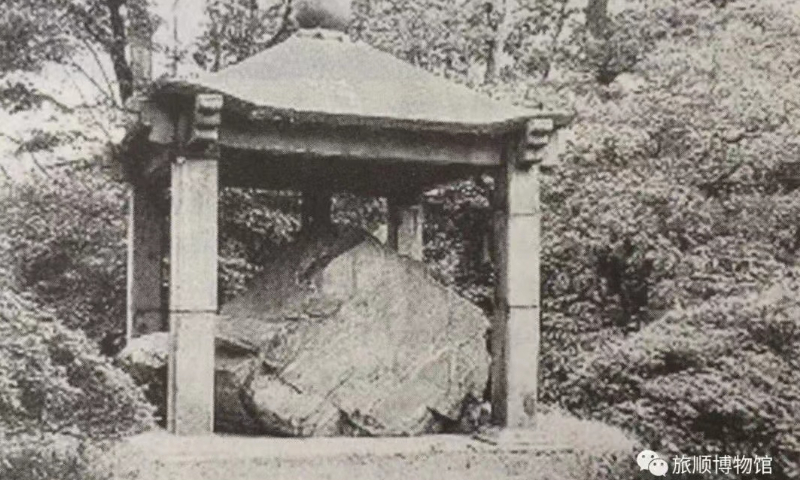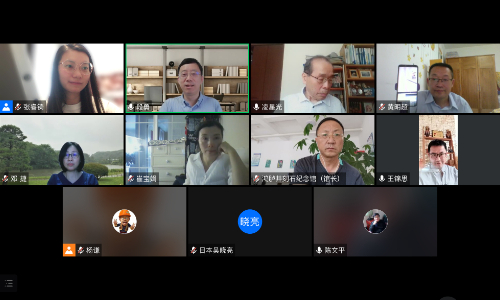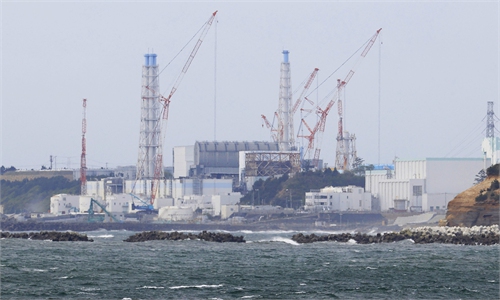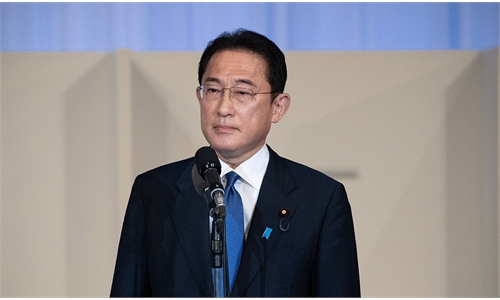ARTS / CULTURE & LEISURE
China may see breakthroughs in the recovery of looted relics from Japan

The Chinese Tang Honglu Well Stele of the Tang Dynasty (618-907) Photo: Wechat account of Lushun Museum
As the public in Japan demands its government to return the cultural relics plundered from China, Chinese scholars told the Global Times on Sunday that "breakthroughs can be expected in tracing back the most precious one among the looted [relics]."
The China Cultural Relics Return Movement Association, a civil society founded by the well-known Japanese lawyer Keiichiro Ichinose, held another meeting with Chinese scholars and members of House of Representatives of Japan.
The cultural association now eyes four main objects from the Japanese government: three Chinese stone lions looted by the Japanese government from the Sanxue Temple in Northeast China's Liaoning Province, and the Chinese Tang Honglu Well Stele of the Tang Dynasty (618-907), the largest and heaviest looted relic that is now in the possession of the Japan Imperial Palace.
This is the second time members of the association meet since the first rally on April 20, with over 100 people attending, according to Ichinose. The goal of the movement is to ask the Japanese government to take action on these looted relics.
To respond to the positive actions from the Japanese public, the Shanghai University held an online seminar called the "Recovery of Tang Honglu Well Stele," with the participation of scholars and the members from the association who have been engaged in the research of the Well Stele, Chen Wenping, Deputy Director of the China Overseas Cultural Relics Research Center at Shanghai University, told the Global Times on Sunday.
"There might be breakthroughs in tracing back the Tang Honglu Well Stele," Chen said.
"Assuming that a cultural relic is owned by the National Museum [of Japan], the recovering process is more troublesome as it is regarded as state-owned property which may involve amendments to relevant laws. However, considering that the Tang Honglu Well Stele was plundered and presented to the Emperor of Japan, as long as he is willing to return it, the problem would be easier to solve."
As Huo Zhengxin, professor of law at the China University of Political Science and Law, noted to the Global Times, in most of the cases of tracing back relics, it is more about a "moral standard" than of regulations.
"No written convention at an international level requires Japan to return them. But in terms of ethics, after WW II, countries including Germany and France, have publicly formulated special regulations to return plundered relics to other countries. It is expected that the Japanese side will cooperate in this regard to meet the expectations of the people of the two countries," said Huo.
Chen added that this relic is an important cultural resource of a country and mentioned that "it has extremely high historical value and counted as national treasure."
"It is unacceptable for such a precious cultural relic, plundered by Japan, is now kept in the imperial palace and the Chinese cannot even see it," Chen said, adding that "China has every reason to demand Japan to return the Tang Honglu Well Stele."
In fact, scholars from China have been asking the Japanese government to return the Tang Honglu Well Stele for years. Tong Zeng, President of the China Federation of Civil Claims against Japan (CFCC), told the global Times on Sunday that they submitted the first requests to the Japanese government as early as 2014. However, no substantial results have been seen.
In 2019, Tong wrote a letter to the Japanese government and the Emperor of Japan, but "no response has been received."

Shanghai University holds the online seminar on the recovery of Tang Honglu Well Stele on May 8, 2022. University scholars and the members of the China Cultural Relics Return Movement Association who have been engaged in the research on the Well Stele are invited to the conference call. Photo: Courtesy of Chen Wenping
The online seminar held by Shanghai University is an "active response," a hint that Chinese scholars are increasingly aware of the need to recover cultural relics.
"The Emperor of Japan has called for peace but how can we talk about peace when the Japanese imperial palace is retaining a large number of cultural relics plundered from China?" Tong added.
The seminar held by the Shanghai University mainly focuses on the research of the Tang Honglu Well Stele, as well as the discussion over the future of Chinese-Japanese cultural cooperation.



